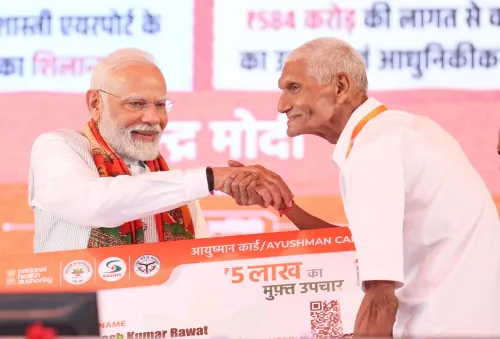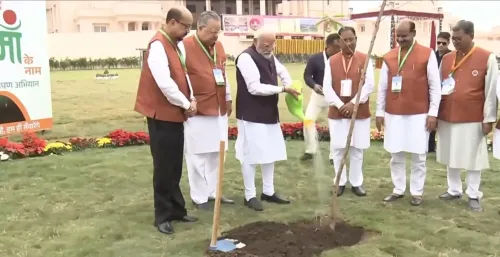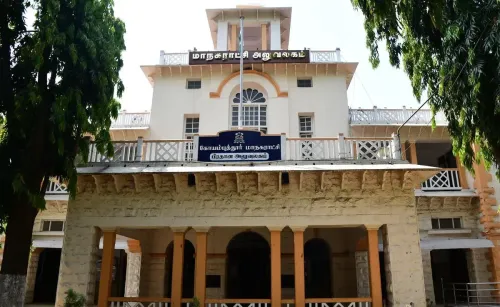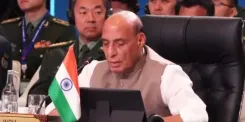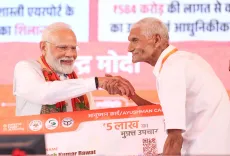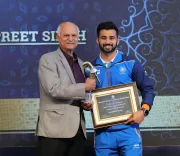What is the Central Government's Agenda for the All-Party Meeting on 'Operation Sindoor'?
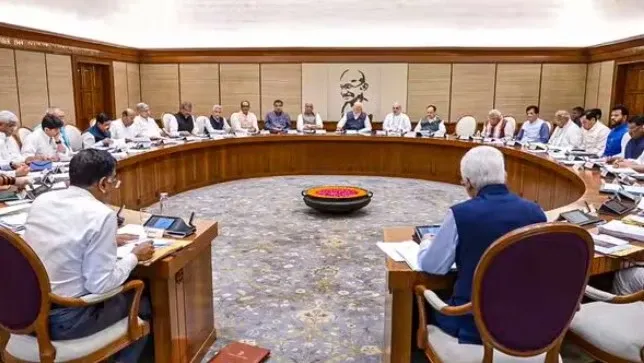
Synopsis
Key Takeaways
- All-party meeting scheduled to discuss military strikes.
- Operation Sindoor targets terror camps in Pakistan and PoK.
- Government emphasizes measured and responsible action.
- Political leaders show unified support for armed forces.
- Focus on dismantling terrorist infrastructure to prevent future attacks.
New Delhi, May 8 (NationPress) The Central government has convened an all-party meeting at 11 a.m. on Thursday to update political leaders regarding the military operations executed by the Indian armed forces, which targeted terror camps situated in Pakistan and Pakistan-occupied Kashmir (PoK).
During the meeting, participants will be informed about various facets of 'Operation Sindoor', which includes the operation's goals, the specific terror targets that were engaged, the strategic and security implications, and India's readiness for any retaliatory measures from Pakistan.
The Central government has articulated that the armed forces conducted a "measured, non-escalatory, proportionate, and responsible" strike aimed at eradicating terrorist infrastructure in Pakistan, intending to "deter and pre-empt" further attacks subsequent to the Pahalgam incident.
Parliamentary Affairs Minister Kiren Rijiju disclosed details about the upcoming meeting via X, stating it will occur in the Parliament Library Building, within the Parliament.
"The government has summoned an All Party leaders meeting at 11 a.m. on May 8, 2025 at Committee Room: G-074, in the Parliament Library Building, Parliament Complex in New Delhi," Rijiju mentioned.
This meeting is set against the backdrop of rising regional tensions following missile strikes launched early Wednesday by the Indian armed forces targeting nine terror facilities in Pakistan and PoK, as part of 'Operation Sindoor', which was initiated in reaction to the April 22 terror attack in Pahalgam, Jammu and Kashmir.
The strike occurred two weeks post the terror attack, which resulted in the demise of 26 individuals — 25 Indians and one Nepali citizen — in Baisaran Valley.
Earlier on Wednesday, Prime Minister Narendra Modi met with President Droupadi Murmu at Rashtrapati Bhavan, formally updating her about the military operation executed by the armed forces.
The precision strikes took place early Wednesday morning and lasted for merely 25 minutes. Between 1.05 a.m. and 1.30 a.m., a total of 24 missiles were launched to target nine terrorist facilities, including the headquarters of Lashkar-e-Toiba in Muridke and significant terror training locations in Bahawalpur — historically recognized as breeding grounds for extremist activities.
"Our operations have been concentrated, measured, and non-escalatory in nature. No Pakistani military assets were targeted. India has exhibited significant restraint in terms of target selection and execution methodology," declared the government in a statement.
Foreign Secretary Vikram Misri reiterated that India's intention was to dismantle terror infrastructure while minimizing civilian harm and preventing a wider conflict.
"Operation Sindoor was a responsible and proportionate reaction to Pakistan's persistent support for terrorism," he stated, noting that Pakistan had maintained its trend of denial and deflection instead of taking decisive action against those responsible for the Pahalgam massacre.
"This government has upheld its commitment — those accountable will face justice," the statement concluded, emphasizing India's resolve to respond to any future cross-border terrorism.
Political leaders from various parties have voiced robust support for the Indian armed forces following the operation's successful execution.
The Leader of Opposition in the Lok Sabha, Rahul Gandhi, commended the military's precision and bravery, sharing on X, "Proud of our Armed Forces. Jai Hind!"

